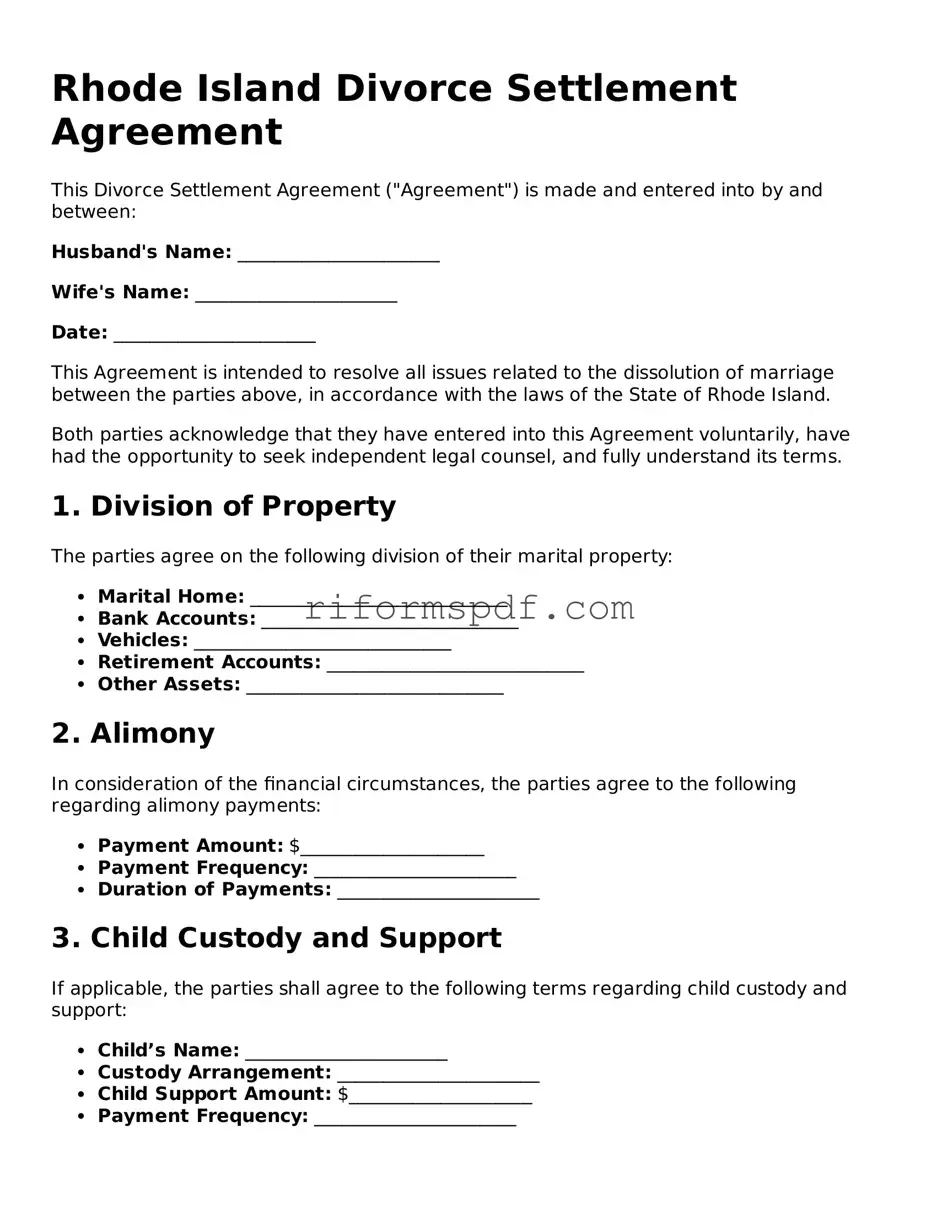Printable Divorce Settlement Agreement Form for Rhode Island
The Rhode Island Divorce Settlement Agreement form is a crucial document that outlines the terms of a divorce between two parties. This agreement addresses various aspects such as property division, child custody, and support obligations. Understanding this form is essential for ensuring a fair and equitable resolution during the divorce process.
Launch Editor

Printable Divorce Settlement Agreement Form for Rhode Island
Launch Editor
Finish the form now and be done
Edit Divorce Settlement Agreement online and skip the paperwork.
Launch Editor
or
⇓ PDF Form
